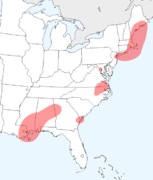Piers Kelly writes:
The esteemed editrix of Crikey has asked me to comment on the increased usage of the spelling ‘ass’ over ‘arse’ in phrases such as “come back to bite you in the ass”.
I’m a confirmed ‘arse’ man from way back but I have no intention of pushing this preference onto others. Diversity is a lovely thing after all.
Having said that, let me explain why I like ‘arse’. For me it’s all about the ‘r’. It leaps off the page with a meaty trill, evoking at once the hairy bum of a commando-kilted highlander and the war cry of a Cornish pirate. By contrast, ‘ass’ packs virtually no punch. To my mind it bleats in a plaintive falsetto, conjuring nothing more than a pair of sculpted ’tocks in spandex hot pants, waiting to be drop-kicked by a muddy boot.
The issue is probably more about spelling than language and I would wager that it’s a uniquely Australian dilemma. I very much doubt that ‘ass’ will be introduced into Britain any more than Americans are likely to adopt ‘arse’. Why? Linguistic jingoism aside, perhaps it has something to do with pronunciation. To the extent that written English words have at least some relationship to the way they sound, an Australian English ‘ass’ will probably sound pretty close to an Australian English ‘arse’. This is because Australians typically don’t make use of the so-called post-vocalic (or after-vowel) ‘r’, which means that for us the words ‘balmy’ and ‘barmy’ are pronounced identically. Contrast this with an American pronouncing ‘car’ as ‘carrgh’ (known as the rhotic ‘r’) or a Scot rolling the ‘r’ in ‘person’ (known as a trill or tap, depending on its length).
But the post-vocalic ‘r’ is alive and well in the arse ends of Britain, and outside a few r-less enclaves it predominates in the US.

(And that’s before consideration of the difference in the vowel-sounds associated with each spelling, which I won’t go into.)
The a-word, in all its various representations, has a long pedigree. In about AD 1000 it was written as ‘ears’ and the spelling ‘arses’ appears by 1480. Not until 1860 does the ‘ass’ spelling come onto the scene — in England, no less — to denote the bum-crack-like groove on a shoulder block, used by sailors for hauling heavy loads.
If dictionaries are anything to go by it doesn’t seem to be the case that the ‘ass’ spelling arose through a figurative convergence of ‘arse’ (bum) and ‘ass’ (donkey). But a convergence in these meanings may be retrospective: in origin, the expression ‘to make an ass of yourself’ was to behave like a donkey, ie foolishly. Today we’re not so sure. Google comes up with 2,570,000 for “an ass of yourself” but a not insignificant 227,000 hits for “an arse of yourself”.
I reckon one of the most interesting new uses of ‘ass’ is as a substitute for an object pronoun.
Here’s just a couple of examples of ‘my/your ass’ in US hip hop:
My wandering
Got my ass wondering— Chuck D, ‘He got game’
(‘My wandering got me wondering’)
Cos when she leaves yo ass
She gonna leave with half — Kanye West, ‘Gold digger’
(‘When she leaves you she is going to leave with half [of what you own]’)
You could think of the pronominal ass as an example of synecdoche, or a part the stands for a whole. For example, when you use the expression “I gave them a hand in unloading the equipment” it implies that you assisted them with your whole body, not just your hand. Likewise ‘my ass’ stands for me or my whole self, not just the posterior portion.
To a large extent this poetic use of ‘my ass’ (which appeared in print as early as 1958) stands in the stead of the standard English ‘me’ and ‘myself’, and the same goes for all the -self words: yo ass (you, yourself), his ass (him, himself), they ass (‘them’, ‘themselves’).
The -elf sense can be reflexive:
Better move yo ass
Outta the path fast— L’il Wyte, ‘My cutlass’
(‘Move yourself out of the path fast’)
But unlike in standard varieties of English it won’t work as an adverb or as a means of emphasising somebody’s role. You can’t, for example, say “I’ll do it my ass” (for “I’ll do it myself”) nor does it make sense to say “I my ass have been damaged by this” (for “I myself have been damaged by this”).
So despite my love of ‘arse’ I can certainly think of a few scenarios where I would personally opt for ‘ass’, especially if I were consciously making use of a US idiom. I would never, for example, accuse a sorry-arse mofo of being lame-arse prior to opening a can of whoop-arse. Likewise, I’m sure Paul Keating would not have thought to describe Australia as “the ass end of the world”.
You can, of course, by-p(ass) the issue altogether by opting for the good old-fashioned ‘bum’ which has the added advantage of being local. Perhaps one of these days some smart-arse will even try to make it work as a pronoun.







Crikey is committed to hosting lively discussions. Help us keep the conversation useful, interesting and welcoming. We aim to publish comments quickly in the interest of promoting robust conversation, but we’re a small team and we deploy filters to protect against legal risk. Occasionally your comment may be held up while we review, but we’re working as fast as we can to keep the conversation rolling.
The Crikey comment section is members-only content. Please subscribe to leave a comment.
The Crikey comment section is members-only content. Please login to leave a comment.